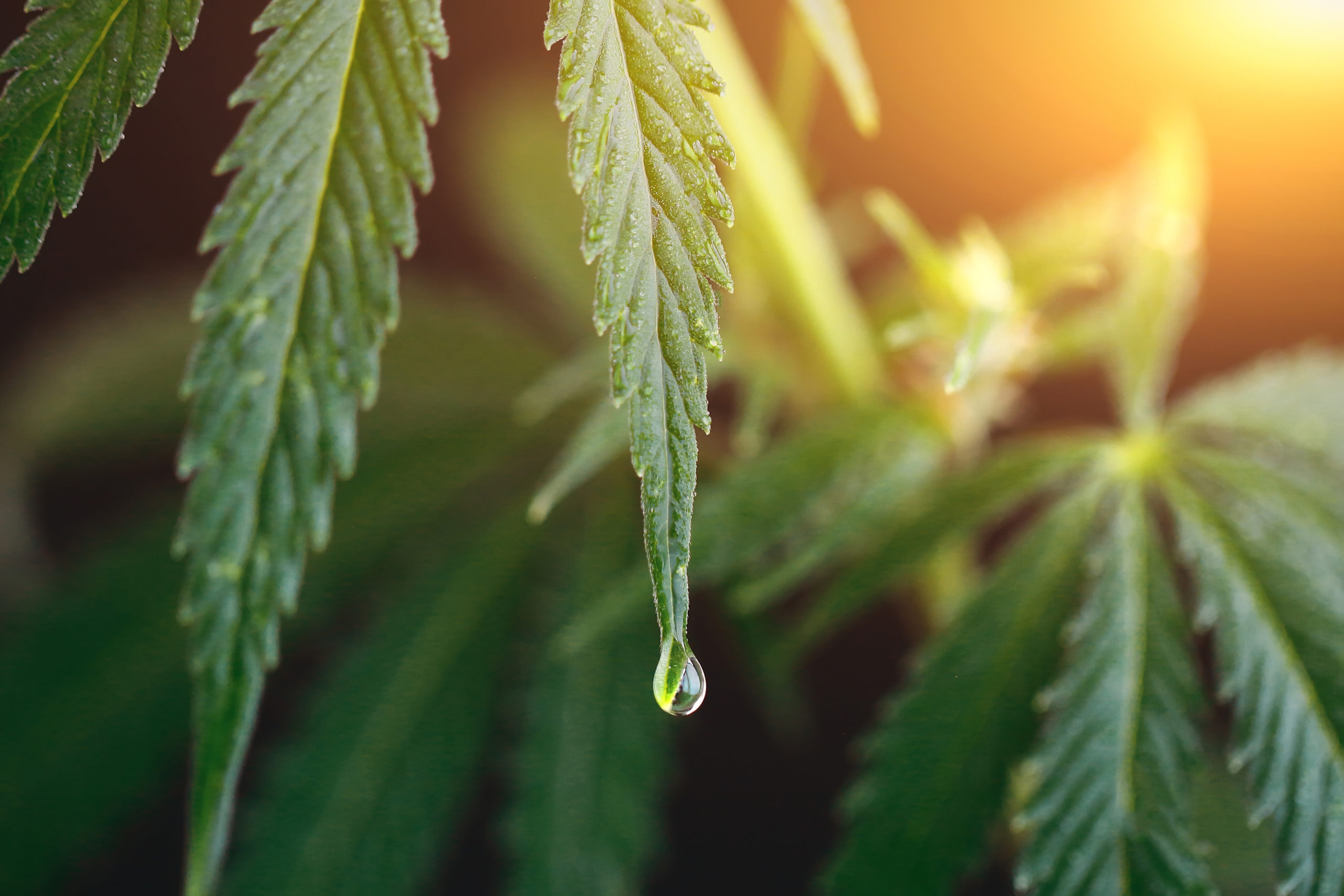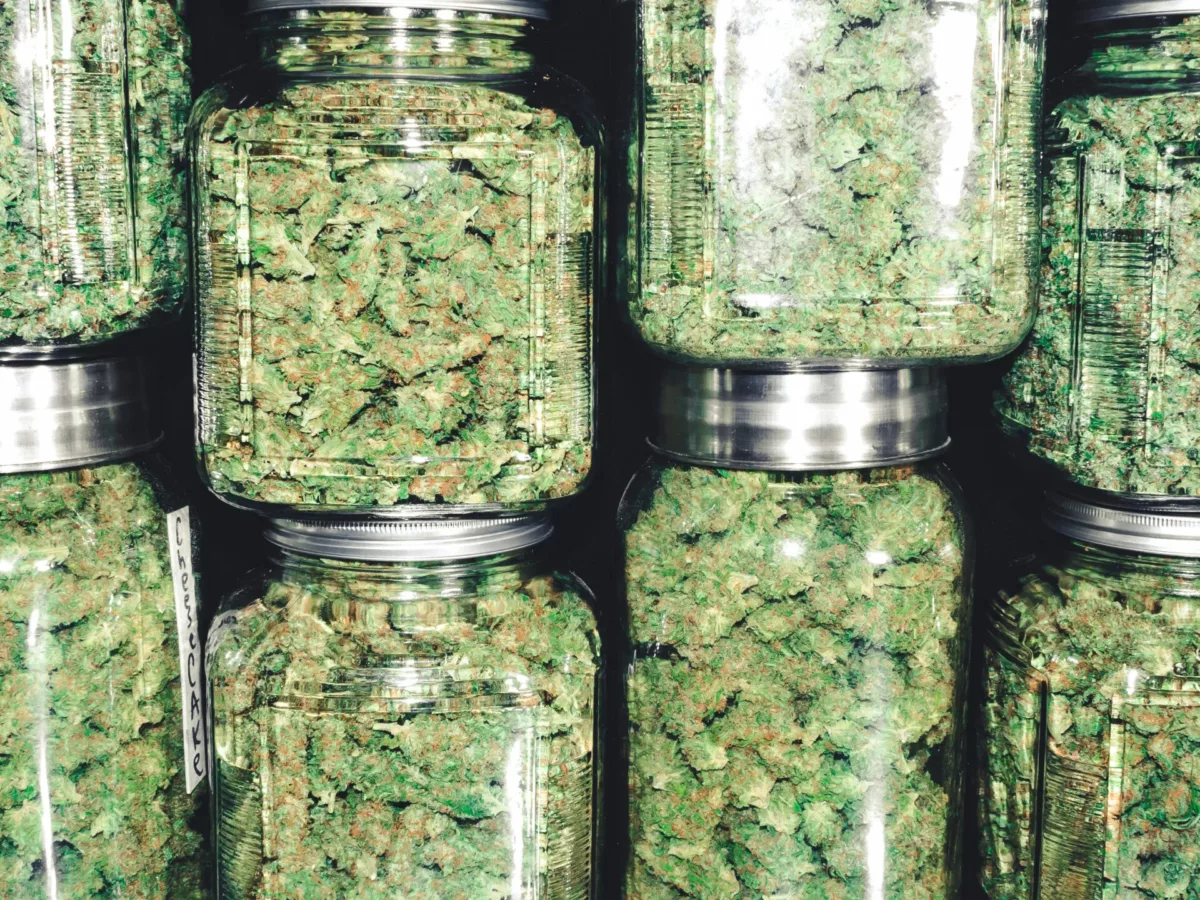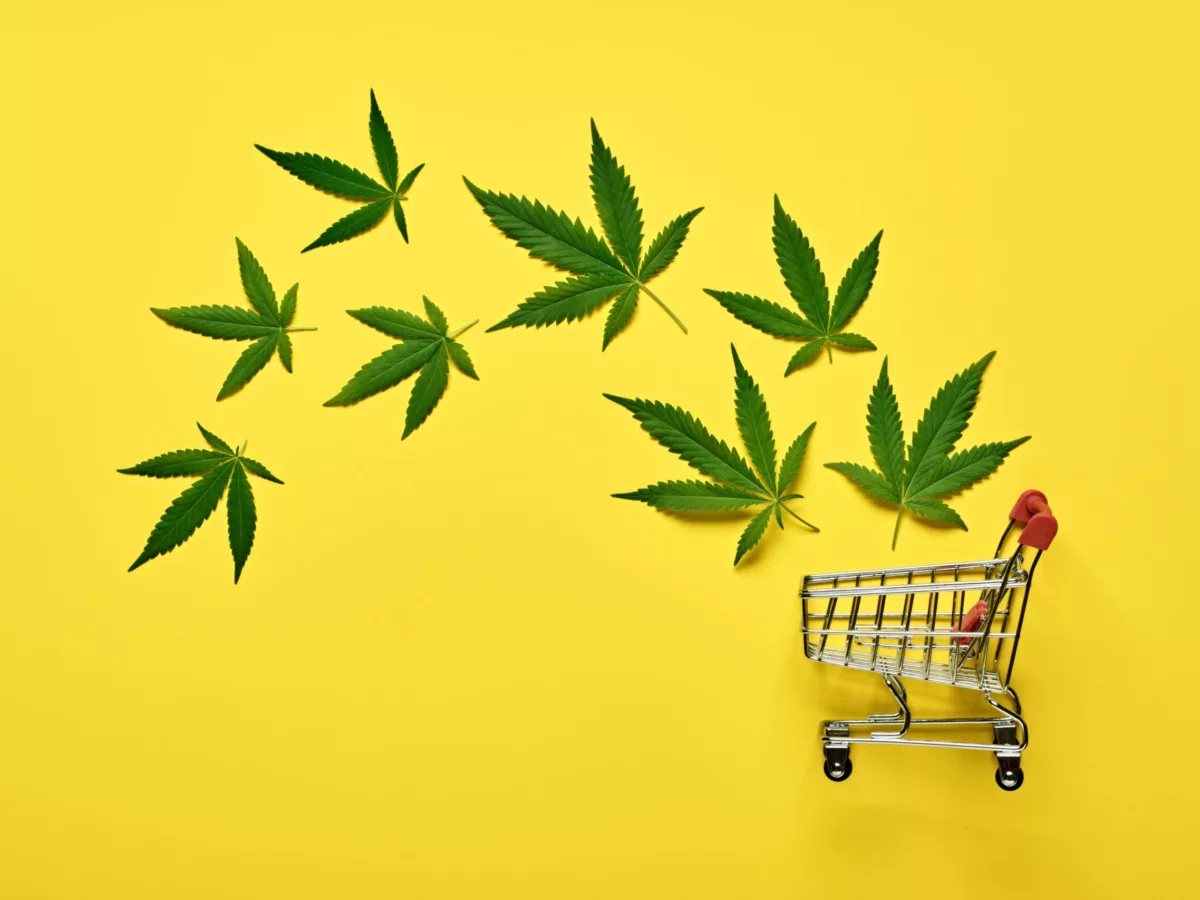Virginia regulators plan to step up efforts to rein in the sale and production of THC products that are synthetically derived from the hemp plant, like Delta-8.
The Virginia Department of Agriculture and Consumer Services (VDACS) and Office of the Attorney General (OAG) announced last week that business owners who don’t fall in line with new state regulations on synthetically-derived THC could face a misdemeanor charge punishable by up to one year in jail and a $2,500 fine.
VDACS noted it would try to educate businesses and reach “voluntary compliance” before seeking criminal penalties. “Once regulatory options are exhausted, the case could be referred to a Commonwealth’s Attorney for further enforcement,” said VDACS Commissioner Joseph Guthrie in a press release.
The enforcement push comes after Virginia’s General Assembly last month approved a budget package that included last-minute amendments to create new crimes for cannabis possession and crack down on some hemp products. Cannabis advocates, industry stakeholders and civil rights organizations criticized lawmakers for sneaking the provisions into the budget without public comment and despite having voted them down earlier in the legislative session.
VDACS said the new budget provisions give regulators more power to track down businesses that sell industrial hemp extracts like Delta-8 or foods infused with such products. Delta-8 is a cannabinoid chemically extracted from hemp that produces a similar high – though usually less potent – as Delta-9 THC, which occurs naturally in the cannabis plant.
While cannabis remains entirely illegal at the federal level, Delta-8 has largely slipped through the cracks thanks to a loophole in federal law. A federal appeals court recently ruled that hemp-derived cannabinoids like Delta-8 are legal under the 2018 Farm Bill – whether or not they have psychoactive properties.
But Gov. Glenn Youngkin’s administration appears to be ignoring that federal ruling, with regulators insisting that Delta-8 products are illegal under Virginia law.
“Any chemically-synthesized cannabinoid is considered a food adulterant and any person who manufactures, sells, or offers for sale a chemically-synthesized cannabinoid as a food or beverage is in violation of the Virginia Food and Drink Law,” said the VDACS press release.
The Youngkin administration’s campaign to crack down on hemp products has riled hemp cultivators, retailers and advocates across the commonwealth. The Virginia Hemp Coalition on Wednesday said the new VDACS policy caught many hemp businesses by surprise, leaving them with shelves full of unsold products that the state has suddenly declared illegal.
“[T]he Youngkin administration is using bureaucrats at VDACS to essentially ban Delta-8 and 10 products and the like in Virginia with no grace period whatsoever,” said a July 2 post on the group’s Facebook page.
The coalition said Virginia’s new policy contradicts federal law and could lead to lawsuits from hemp businesses. “This has happened in other states and lawsuits have overturned this type of policy before,” the post said.
The group has called for a preliminary injunction against VDCAS’ enforcement policy to preserve the current status quo on hemp-derived cannabinoids until the case can be heard in court.
“There is a lot of confusion, misinformation and some willful ignorance as well on this subject matter,” the post said.
VDACS also said it plans to crack down on THC edibles that imitate popular snack and candy brands – such as Cheetos, Skittles or Starbursts – in a bid to curb a surge in cases of children who inadvertently consume them.
“As THC- infused edibles become commonplace, some distributors have started advertising their products to look like popular candy and snack items,” said Virginia Attorney General Jason Miyares. “Their deceiving appearance and packaging can confuse young children who come across them and have led to an increase in accidental consumption, putting their health at risk.”
It’s not entirely clear whether regulators will also target businesses selling CBD – a hemp extract that contains small, non-intoxicating amounts of THC and has become ubiquitous at stores across Virginia – from pharmacies to grocery stores. VDACS seemed to hint at the possibility that CBD products could face stricter rules, too.
“An industrial hemp extract that has a THC concentration of no more than 0.3 percent, is produced by a manufacturer that has been inspected by the responsible food regulatory agency in the location in which the extract is produced, and does not exceed established contaminant limits may be distributed in Virginia,” the release said.
CBD infused-products run the gamut from dog treats to infused coffee drinks, and tougher state regulations could have wide-ranging consequences on retailers and manufacturers.
A new state task force created to analyze hemp extracts that contain THC is slated to meet for the first time on Thursday in Richmond. According to VDACS, the purpose of the meeting is to “analyze and make recommendations regarding whether any statutory or regulatory modifications are necessary to ensure the safe and responsible manufacture and sale of industrial hemp extracts and other substances containing tetrahydrocannabinol.”
Ahead of the meeting, advocates and industry stakeholders were urging hemp business owners to testify before the task force.
“We need as many hemp businesses and hemp consumers to testify to this task force as possible,” said the Virginia Hemp Coalition. “While we want to work with the Administration on getting the bad products and bad apples out of the industry we want to make sure we don’t throw out all the good apples in the process and make sure Virginians have continued access to the quality hemp products they use for relief of various symptoms.”






